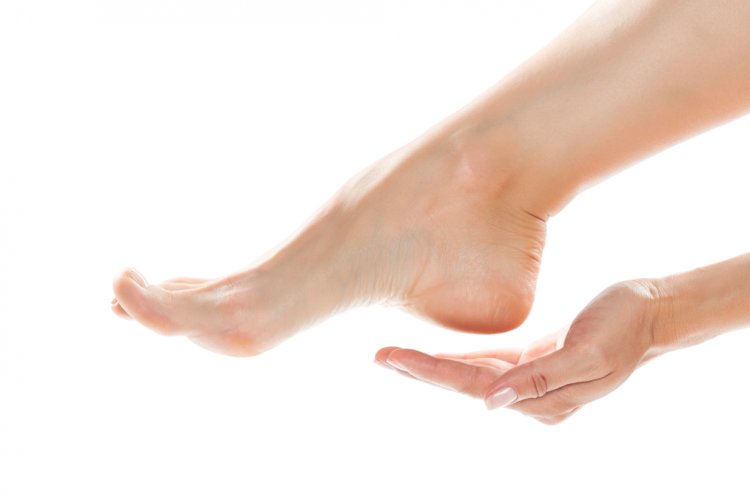Comprehensive Guide to Corns: Causes, Symptoms, Treatments, and Prevention
Corns, medically known as helomas or clavi, are areas of thickened skin that develop in response to repetitive friction or pressure. While often benign, corns can cause discomfort and pain, particularly when left untreated. Understanding the intricate details of corns, including their origins, manifestations, management strategies, and preventive measures, is crucial for effective foot care and overall well-being. #Corns #FootCare #FootHealth #Podiatry #HealthyFeet #FootWear #Prevention #Treatment #Orthotics #HealthyLiving #Wellness #SkinCare #MedicalTips #HealthyLifestyle #SelfCare #FootPain #HealthTips #MedicalAdvice #HealthEducation #HealthAwareness

Exploring the Causes of Corns
Corns manifest due to various factors, including:
- Footwear Selection: Ill-fitting shoes, especially those that are too tight or narrow, can compress toes and create pressure points conducive to corn formation.
- Foot Structure: Certain foot abnormalities, such as hammertoes or bunions, alter weight distribution and increase the likelihood of corn development.
- Occupational Hazards: Individuals engaged in activities that involve prolonged standing, walking, or repetitive motions are more susceptible to corns.
- Biomechanical Issues: Poor gait mechanics or imbalances in foot mechanics can predispose individuals to corns.
- Age and Skin Thickness: Older adults and individuals with naturally thickened skin are more prone to corns due to decreased skin elasticity and resilience.
Understanding the Symptoms of Corns
Corns present with a spectrum of symptoms, including:
- Localized Discomfort: Corns often elicit tenderness or pain, particularly when pressure is applied.
- Skin Changes: The affected skin may appear thickened, dry, or calloused, with a characteristic hardened core.
- Inflammation: In some cases, corns may become inflamed, presenting with redness or swelling.
- Functional Impairment: Corns can impede normal foot function, leading to difficulties with walking or wearing shoes.
Navigating Treatment Options
An array of treatment modalities exists for managing corns:
- Footwear Modification: Opting for shoes with a wide toe box and adequate cushioning can alleviate pressure and prevent corn recurrence.
- Padding and Orthotics: Specialized padding or orthotic inserts can redistribute pressure away from corns and provide symptomatic relief.
- Topical Treatments: Salicylic acid-based preparations or keratolytic agents can gradually soften and dissolve corns over time.
- Professional Interventions: Podiatrists or dermatologists may perform corn debridement using surgical instruments or offer corticosteroid injections for symptomatic relief.
- Physical Therapy: Stretching exercises and manual therapy techniques can address underlying biomechanical issues contributing to corn formation.
Proactive Preventive Measures
Prevention is paramount in mitigating corn-related complications:
- Regular Foot Inspections: Routinely examine the feet for early signs of corn formation, intervening promptly to prevent exacerbation.
- Hygienic Practices: Keep the feet clean and dry, minimizing the risk of bacterial or fungal infections that can complicate corn management.
- Moisturization: Apply emollients or moisturizers to keep the skin hydrated and supple, reducing the likelihood of corn development.
- Shoe Rotation: Alternate between different pairs of shoes to prevent prolonged pressure on specific foot areas.
- Foot Care Education: Educate individuals about proper foot care practices, emphasizing the importance of wearing well-fitted footwear and seeking timely medical attention for foot abnormalities.
Comprehensive knowledge of corns empowers individuals to adopt proactive measures for prevention and seek appropriate interventions for symptomatic relief. By unraveling the complexities of corns and embracing holistic foot care practices, individuals can optimize foot health and enhance overall quality of life.
Discover Coupoly's exclusive Medical Concierge Service, connecting you with renowned doctors and clinics, whether in the UK or abroad.
Get in Touch
Disclaimer:
The information provided in this article is for educational purposes only and should not be considered medical advice. If you have any health concerns or are experiencing symptoms, it is important to consult with a healthcare professional, such as a doctor or clinic, for proper diagnosis and treatment. Always seek the advice of your doctor or other qualified health provider with any questions you may have regarding a medical condition. Do not disregard professional medical advice or delay in seeking it because of something you have read in this article.
What's Your Reaction?





















